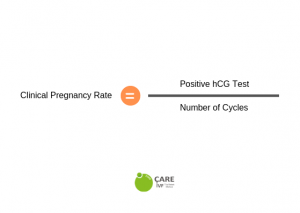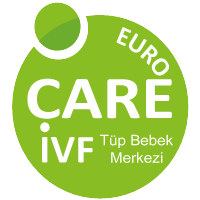The entire team wants to provide you with an all-encompassing fertility program in the Turkish Republic of Northern Cyprus. At EuroCARE IVF, 8 out of 10 patients are achieving a positive pregnancy result.

As patients approach the end of their IVF journey in North Cyprus — the next chapter begins. After all the preparation, the travel to Cyprus, and the embryo transfer is complete, the next stage of the journey — is the pregnancy test.
The most accurate test for pregnancy is the beta hCG blood test. The hormone human chorionic gonadotropin (better known as hCG) is produced during pregnancy. It is created by cells that form the placenta, which nourishes the egg after it has been fertilized and becomes attached to the uterine wall. Levels can first be detected by a blood test around 12 days after the embryo transfer procedure has taken place and 15 days after the embryo transfer by a urine test.
- An hCG level below 5 mIU/ml is considered “not pregnant”
- An hCG level above 25 mIU/ml is considered “pregnant”
- An hCG level between 5-25 mIU/ml requires a follow-up test to confirm what it could be
In general, the hCG levels will double every 72 hours. The level will reach its peak in the first 8 – 11 weeks of pregnancy and will decline and level off for the remainder of the pregnancy.
Please use caution — and try not to overthink the hCG numbers in front of you. A normal pregnancy may have low hCG levels and result in a perfectly healthy baby. The results from an ultrasound after 5 – 6 weeks gestation are much more accurate than using hCG numbers. At 7 – 8 weeks gestation, the heartbeat can then be detected.
EuroCARE IVF Success Rates
At EuroCARE IVF, we understand that IVF success rates are an important aspect of your decision-making. Patients should keep in mind that IVF success is very individual, and personal circumstances affect each person’s likelihood of reaching a successful pregnancy.
IVF with own eggs
The field of reproductive medicine is rapidly progressing with many technological advances that have significantly improved IVF success in recent years. Intracytoplasmic Sperm Injection (ICSI) in Cyprus is one of the ground-breaking technologies that has enabled our team to successfully fertilize an egg. In 2018, the chances of a successful pregnancy through IVF using ICSI were as follows:

Egg Donation
IVF using donor eggs Cyprus is an extraordinarily successful fertility treatment used for women with diminished ovarian reserve or poor quality of their eggs. The high percentage of pregnancy rates for egg donation cycles is due to the use of donor eggs that are obtained from young, healthy women aged 21-28. Clinical pregnancy rates of IVF using donor eggs in 2018 were as follows:

Sperm Donation
Sperm donation at EuroCARE IVF in North Cyprus is a comprehensive donor program that is designed to help individuals and couples build or grow their family. Sperm donation success rates are influenced by several factors, including a patient’s medical and reproductive history, age, egg quality, lifestyle habits, etc. Our pregnancy rates for IVF treatment with donor sperm in 2018 were quite good:

IVF with PGS
Preimplantation Genetic Screening (PGS) in Cyprus is another technique that has greatly improved IVF success over the past years. This advanced technology enables our medical team to address the challenge of selecting top-quality embryos for transfer to the patient’s uterus. Increases in IVF clinical pregnancy rates were seen following PGS testing. The graph below shows the clinical pregnancy rates for patients with PGS:
IVF Success Rates
IVF success rates are the percentage of all IVF procedures that result in a favorable outcome. Based on the calculation method used for the evaluation of the outcomes, there are two types of success rates: pregnancy and live birth rates.
This is the formula for calculating the IVF pregnancy rate:
Live birth rate formula

The live birth rate is the percentage of all IVF cycles that lead to live birth. This rate excludes miscarriage or stillbirth, and multiple-order births, such as twins and triplets, are considered one pregnancy.
Pregnancy Rate Formula

The clinical pregnancy rate is used most often when the number of live births is not yet available. Pregnancy rates are more convenient to use since a pregnancy takes about 40 weeks to reach full term and the end results still may not be known. That is why our IVF clinic publishes only pregnancy rates as they are available.

